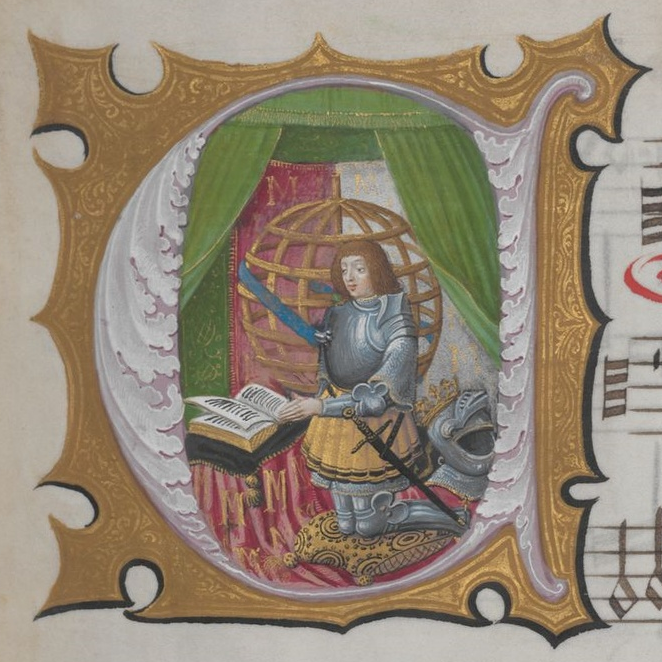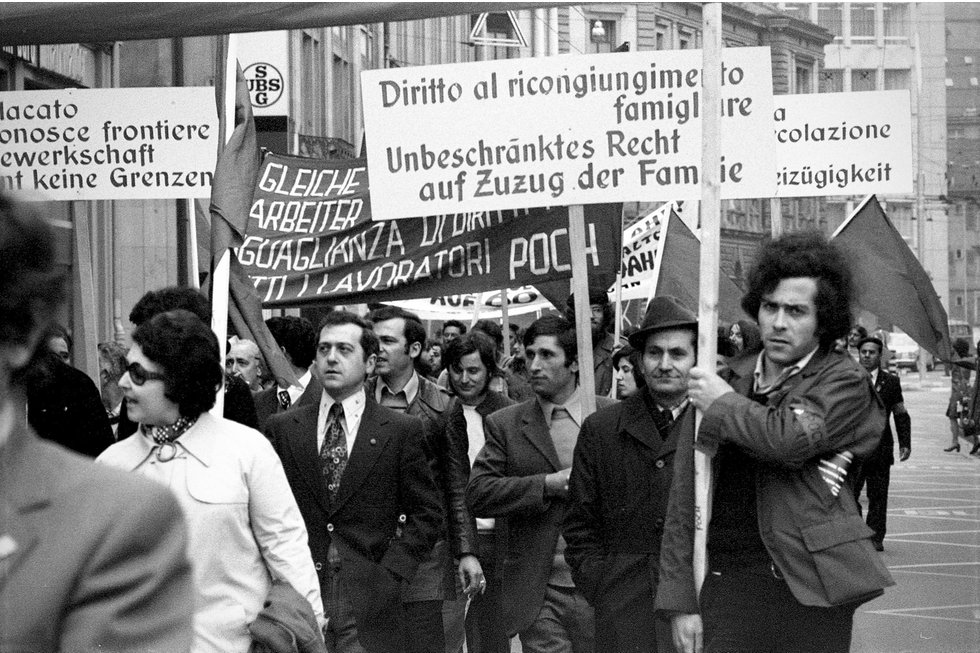In 1496, the King of Portugal Manuel I wanted to marry the daughter of the kings of Spain, Isabella, Princess of Asturias. She died shortly thereafter, in childbirth. 



One of the requests of the King of Spain in the marriage negotiations was that Portugal would force Jews to convert to catholicism or be expelled, which Manuel did. Those that continued to practice in secret were burnt, most had to flee. 



In 1506, hundreds in Lisbon were killed, accused of being Jews.
en.wikipedia.org/wiki/Lisbon_ma…
en.wikipedia.org/wiki/Lisbon_ma…
Many of these exiled Portuguese Jews fled to more tolerant places like the Netherlands or Britain. Educated, many of their descendants became prominent people in the arts and science: Baruch Spinoza, David Ricardo. 



Fast forward to 2015. The Portuguese (centre-right) government changes its citizenship law to allow for descendants of the persecuted Jews to apply for citizenship, as a form of redemption after 500 years. publico.pt/2015/01/29/pol…
If you can claim a lineage to the expelled jews 500 years ago, you can qualify. This opens some business opportunities. Here, this Israeli company proposes (in Hebrew) to help you sort out how to obtain a Portuguese EU passport.
portugalis.co.il


portugalis.co.il



Meanwhile, Roman Abramovich, who owns Russian and Israeli passports, because of Brexit, is no longer an EU resident. In 2018, he withdrew a UK visa application. bbc.com/news/uk-443326…
Now Roman Abramovich is Jewish, but Abramovich is a typical name in the Ashkenazy community (from Eastern Europe). Portuguese Sefardic names would for instance be Da Costa (a prominent Dutch poet). en.wikipedia.org/wiki/Isaac_da_…
How does Portugal determine whether you qualify for citizenship as a descendant of Portuguese Jews? You need to have a certificate issued by a recognised Jewish community based in Portugal, so the state delegates this certification to a private entity. justica.gov.pt/Como-obter-nac… 

Here the Jewish community of Porto explains the application procedure. They emphasise that they are impartial and strict.
jewishcommunityofoporto.blogspot.com
jewishcommunityofoporto.blogspot.com

However, this organisation in charge of certification also accepts donations for its activities. It happens that Roman Abramovich is one of the benefactors of the newly opened Holocaust Museum in Porto. nit.pt/fora-de-casa/n…
Strangely, the curator of this museum edited the Portuguese wikipedia page of Abramovich 18 times between June and November this year, notably editing the "family" bit. tvi24.iol.pt/mf-mundo/chels… 



On this wiki page, the only hint at Abramovich's Sefardi lineage is a reference to ancestors from Hamburg, linking to an article in the Telegraph that doesn't talk about this. pt.wikipedia.org/wiki/Roman_Abr… 

Abramovich did indeed donate to the rehabilitation of the Hamburg Altona cemetery, which received many Portuguese Jews. This was a partnership with the Portuguese Jewish community. But whether these were *his* ancestors is unclear.
mazal.news/post/descendan…
mazal.news/post/descendan…

Would you be able to document you lineage back 500 years? Maybe he could find an ancestor on his mothers's side with a name that was held by Sephardic Jews. We don't know.
Earlier this year, Roman Abramovich became a Portuguese citizen. He may well have Portuguese Sefardi ancestors (there may be evidence of his lineage that is not public), but... publico.pt/2021/12/18/des…
...the fact that he donated large amounts of money to the entity that determines whether he qualifies for citizenship is strange.
Another relevant element of context is that pressure has been building up for imposing sanctions on a number of Russian figures (including Abramovich) in the aftermath of the arrest of Alexei Navalny. Having an EU passport cannot hurt.
google.com/amp/s/theathle…
google.com/amp/s/theathle…
Now Abramovich may be feel a close attachment to Portugal and Portuguese culture. He hired José Mourinho *twice* at Chelsea after all.
There is a fascinating historical precedent to the Abramovich naturalisation. This article by @VictorPereir1 shows how 180 Jews living in France escaped the Holocaust on account of their (contested) Portuguese citizenship.
cairn.info/revue-guerres-…
cairn.info/revue-guerres-…

It starts in Thessaloniki in 1913. 40% of its population was Jewish at the time, many of them descendants of expelled Sephardic Jews from the Iberian Peninsula. One of the biggest Jewish colonies in Europe. Under Ottoman rule, the city and its Jews were granted large autonomy. 

In 1912 the Greek army occupies the city, and their status is under threat. The Jews ask protection from the international community. Many foreign powers offer assistance to attract them, their wealth and networks.
The Portuguese consul writes that the Jews of Thessaloniki could be a great asset for trade between Portugal and the East. Given that they are descendants of expelled Jews from Portugal, they could be "reinstated in their original Portuguese citizenship". 

A provisional solution is to register them at the consulate; their status is unclear. Are they Portuguese? Greece thinks so, but Portugal doesn't recognise them formally. In the meantime, Portugal, then a Republic (1910-1926), becomes a dictatorship. 

In 1917, Thessaloniki burns. 70,000 residents are made homeless, 52,000 of whom Jews. 32 synagogues, 10 rabbinical libraries, eight Jewish schools, and numerous Jewish philanthropies, businesses and clubs are destroyed. Many Jews emigrate, notably to France. 

Fast forward to 1943 in France. These "Portuguese" Jews from Thessaloniki or their descendants ask protection from Portuguese diplomatic authorities to save them from impending deportation to death camps.
Portugal doesn't consider them Portuguese, and the Portuguese regime is ideologically close to the Axis powers, even if it remains neutral during the war.
Some Portuguese diplomats support them nevertheless - these are usually people from a high socio-economic background - and deliver them passports. 

Between August 1943 and July 1944, 5 trains leave France for Portugal, transporting about 200 Jews from Thessaloniki. 3 days after the last train, another train leaves, this time headed for the death camps. 

This is an amazing story told by @VictorPereir1 here, based on lots of archival work (in French) cairn.info/revue-guerres-…
The evidence on the Abramovich naturalisation process in the thread draws on this investigative article in @Publico which uncovered the story publico.pt/2021/12/18/des…
• • •
Missing some Tweet in this thread? You can try to
force a refresh


















